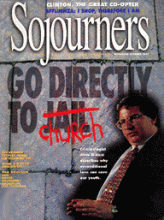Fifteen years ago, Mumia Abu-Jamal was sentenced to death for a murder he and the multitudes who have accepted his cause say he did not commit. From prison Abu-Jamal wrote Death Blossoms, a window into a mind that dares to see beyond the bleakness of death row.
A collection of essays, Death Blossoms serves as a platform for Abu-Jamals views. Religion, the environment, God, and oppression are recurring themes, with perspectives on children, violence, slavery, and prison life scattered among them.
In "The Spider," Abu-Jamal recalls a conversation with a fellow prisoner, illustrating the loneliness of death row.
And indeed it was amazing, especially to Norman, a man encaged in utter isolation. Here he satwould sit for the remainder of his daysin the antiseptic stillness of a supermaximum-security prison block, yet he was not entirely alone. With a quiet, unwitting bravado that defied the States most stringent efforts to quarantine him, spiders had moved in and built webs in the dark corner under his sink. Now they shared his cell, and he spent hours watching them spin their miraculous silken thread.
Through a tiny insect that most of us would squash absent-mindedly, we are witnesses to both the bleakness of life on death row and the preciousness of it.
The power of this book comes not from its form: The chapters seem to be ordered at random, resulting in an uneven rhythm. Rather, its power lies in the content. Even then, the content itself is not radically profound. Abu-Jamal tells us that children are our future, poverty and homelessness are widespread, and our consumption and carelessness are destroying mother Earth.
Read the Full Article
